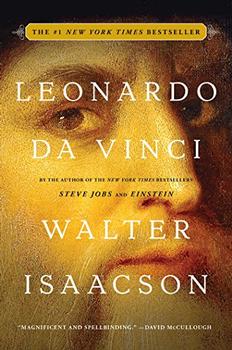Summary | Excerpt | Reading Guide | Reviews | Beyond the book | Read-Alikes | Genres & Themes | Author Bio

A story of desire and deception, sin and religion, loyalty and friendship that paints a portrait of one of the world's greatest cities, Renaissance Venice, at its most potent moment in history.
My lady, Fiammetta Bianchini, was plucking her eyebrows and biting color into
her lips when the unthinkable happened and the Holy Roman Emperor's army blew a
hole in the wall of God's eternal city, letting in a flood of half-starved,
half-crazed troops bent on pillage and punishment.
Thus begins In the Company of the Courtesan, Sarah Dunant's epic novel of
life in Renaissance Italy. Escaping the sack of Rome in 1527, with their
stomachs churning on the jewels they have swallowed, the courtesan Fiammetta and
her dwarf companion, Bucino, head for Venice, the shimmering city born out of
water to become a miracle of east-west trade: rich and rancid, pious and
profitable, beautiful and squalid.
With a mix of courage and cunning they infiltrate Venetian society. Together
they make the perfect partnership: the sharp-tongued, sharp-witted dwarf, and
his vibrant mistress, trained from birth to charm, entertain, and satisfy men
who have the money to support her.
Yet as their fortunes rise, this perfect partnership comes under threat, from
the searing passion of a lover who wants more than his allotted nights to the
attentions of an admiring Turk in search of human novelties for his sultan's
court. But Fiammetta and Bucino's greatest challenge comes from a young crippled
woman, a blind healer who insinuates herself into their lives and hearts with
devastating consequences for them all.
A story of desire and deception, sin and religion, loyalty and friendship, In
the Company of the Courtesan paints a portrait of one of the world's greatest
cities at its most potent moment in history: It is a picture that remains vivid
long after the final page.
If your view of historical novels has been jaded by too many bland offerings, In The Company of The Courtesan maybe just the book to get you to reassess the genre - and if you love historicals, this is definitely one you'll want to take a close look at...continued
Full Review
 (379 words)
(379 words)
(Reviewed by BookBrowse Review Team).
The Renaissance period (from the French word 'rebirth', Il Rinascimento in Italian) was a period of scientific and cultural changes. The Renaissance was triggered by a new interest in the ancient classical texts and a desire to learn how they could be applied to the arts and sciences - the result was a rebirth of European culture as a whole.
There is no one event that started or ended the period but the general consensus is that it began in the 14th century in northern Italy, and spread north through Europe during the 15th century. The English Renaissance began during the Elizabethan period (16th century). Although much of the new thinking originated in Italy, it was not all one way - during the 15th century innovation also spread southward...

If you liked In The Company of the Courtesan, try these:

by Walter Isaacson
Published 2018
He was history's most creative genius. What secrets can he teach us? The author of the acclaimed bestsellers Steve Jobs, Einstein, and Benjamin Franklin brings Leonardo da Vinci to life in this exciting new biography.

The Confessions of Catherine de Medici
by C.W. Gortner
Published 2011
From the fairy-tale châteaux of the Loire Valley to the battlefields of the wars of religion to the mob-filled streets of Paris, The Confessions of Catherine de Medici is the extraordinary untold journey of one of the most maligned and misunderstood women ever to be queen.